#perma
Text
Every time I see a permashifter on Tumblr I wonder if they're already there.
Similarly, every time I mini-shift or "get close" I wonder if I did it and I am the clone. I mean clone is a misleading word, it's literally just us.
The chances that Stilljuststardust™ has already perma-shifted already are never low and never zero.
Welp, we'll never know.
#shifting antis dni#shiftblr#reality shifting#shifting community#shifting#shifting realities#shifting reality#desired reality#reality shift#permashifting#perma
142 notes
·
View notes
Text



Infinite / perma bruised


Infinite/permabruised ;; an infinite term for when you're permanently bruised.Whether caused by atypical dysphoria or some other disconnect from yourself,this term has nothing to do with radqueers and is against transitioning.

tagging : @radiomogai
original term by : @dreaming-of-mogai



id in alt :33
#✧ cockroach we keep in the pipes ~ (🌻)#✧ vermins gift ~ coining#mogai#liom#mogai coining#mogai safe#infinite term#perma term#perma#infinite
38 notes
·
View notes
Text
I’m making up some friends to my dream life/better cr I’ll make a post ab it soon..
#shifting methods#shiftblr#shifting blog#shifting consciousness#shifting realities#shifters#shifting#shift#reality shifting#perma#perma shifting#cr#Dr#better cr#loa#dream life#loa methods#it girl mentality#loa girl#loassblog#im just a girl#loassumption#loa tumblr#loablr#loa blog#manifesting#manifest#manifesation#lalac3nty#lalac3ntyblog
19 notes
·
View notes
Text


Howdy-do! Goodbye to you!
16 notes
·
View notes
Text
A Masochist’s Approach to Positive Psychology
tw mention of $u!c!de, BD$M/k!nk ramblings.
disclaimer: I have dyslexia so if you find a spelling mistake hold ya fucking breath.
In this discursive I'll be rambling on about pain versus pleasure, what is happiness, and what is wellbeing. These thoughts are an analysis of a paper I used as research for an essay required for a psychology class at my university. To start off I'd like to give some background on what positive psychology is, and why I'm studying. It has a rather unique position in psychology, in that it focuses on the well being of an individual in a way that essentially uses positive emotions, happiness and enrichment of life to alleviate more negative emotions, unlike traditional clinical psychology that fully acknowledges mental illness/presence of symptoms and explores ways to treat those.
The approach to positive psychology that my class is taking is Martin Seligman's PERMA model, the acronym standing for the believed five elements to flourishing as a human being in the modern era:
Positive emotion
Engagement
Relationships
Meaning
Achievement
I will be touching on all of these areas but mainly exploring the second element: Engagement and flow.
Now for the juice. The paper is “Orientations To Happiness and Life Satisfaction: the Full Life versus the Empty Life” published in 2005 and written by Christopher Peterson, nansook park and our positive psychology boi as mentioned above with PERMA, Martin Seligman. I'd like to start of and say how classist the title seems at first glance, “the full life vs the empty one” I believe most of these wellbeing aspects can only be reached by those in places of privilege, those without any severe trauma, strong social connections and relationships, white people, you get the idea. It seems to me like a simple degradation and negative look at those who cannot reach this ideal of a happy life, as described by these elements. Even while looking at journals and accessible websites for “pop-wellbeing” pictures of mostly white, middle to upper-class families such as the one I've included here are used.

I feel like the more I go into studying this emerging field of psychology the more I get filled with this annoyance that psychology is so heavily biased on “W.E.I.R.D” populations. (“W.E.I.R.D” being a term used primarily in social psychology and stands for white, educated, industrialised, rich and democratic, and is used to describe the 80% of people who make up our history of psychological research samples, while that specific demographic only makes up 12% of our global population). MY POINT IS that positive psychology is made for a small population, and if it makes you want to seethe, you have every right to, as it probably wasn't made for you, and verges so close to the toxic positivity line every time.
My reason for writing about this subject is because I feel there is much to gain by thinking about some of the themes of what pleasure and happiness even is, using the concepts in positive psychology as a bounce off, and also because I feel like if I don't have somewhere to write my thoughts down I feel I may explode.
So it starts off with the abstract, where we learn that the research is to explore and analyse findings from surveys done by 845 adults through the internet, measuring life satisfaction through three different ways the authors of the paper saw that we can be happy.
Through pleasure
Through engagement
Through meaning
Though these have barely no description, and I feel like they have multiple overlapping meanings, I will take them out of consequence with the study and give them meaning because I like to be thorough (unlike most arbitrary nonsense that lots of people write in the name of philosophy and psychology)
Pleasure is the physical and emotional sensations that fill us with our own unique way we experience bliss. Pleasure can give our lives meaning, and pleasure can be the subject of engagement and flow. I would like to point out that pleasure can be experienced alone, or with others, and can be sexual, but is oftentimes not. Just in the same way that kink and BDSM is experienced in a similar way, and I feel is the perfect representation of sensation, both physical and emotional, in that its balenced in the range of ways that people can experience pleasure, when humans arent forced to adhere to social norms.
Engagement is to do with the mind and its capacity, flow will be referred to alot and that is when all of the mind is filled with one subject, or activity so that all that our limited-capacitied-brains can comprehend on the conscious level is that activity or subject. Time is blurred.
Meaning can lead me to multiple trains of thought, and as someone who is still young and dosnt have a strong understanding of their own meaning of life, it's hard to pinpoint. But I will describe it as a sort of drive, a colourfull array of experiences and emotions that are inherently attached to a personal arsenal of values, those labled and unlabeled.
The paper claims that those with low scores on these three areas of life have a low life satisfaction. And I agree with this much more than the later described PERMA model from 2011, particularly because I think it carries less popular wellbeing bullshit and caters to a much larger variety of human experience.
We reach the introduction, where I encounter historical mentions to positive psychology, and the statement “the doctrine of hedonism – maximizing pleasure and minimizing pain – was articulatd thousands of years ago by Aristuppus (435–366 BCE) who championed immediate sensory gratification (Watson, 1895)”. My original thoughts on this were annoyance, because as a complex masochist the notion that pleasure is the ultimate good and pain is the ultimate evil, does not describe my experience. I grew up always in a certain amount of pain either physical or emotional, taught to be by my parents, other family members, chronic illnesses and compounding trauma from every year of my life, I have a different baseline, and many others will agree with me in their own cases. I have recently moved out of home and socially transitioned, been able to build stronger relationships and this has had a profound positive effect on my levels of pain. Yes, a little while ago I attempt suicide but this is because I am still dealing with all of my first 18 years of life’s thought patterns and redundant self-esteem. Pain has become my home, well was always my home, it was what lulled me to sleep. What woke me up in the morning, followed me to parties and the bathroom, overseas and in the wilderness, however, now as I’ve moved out I have more space and time to explore my masochist side, I feel empowered by the fact I can return to that home of pain on my own terms, and slowly replace emotional pain with short term physical pain that I can determine what it feel like, and how long it resides for.
This possibly introduces a new concept which came to me in a second reading of this paper: true pain and pain for pleasure. I seek out pain so I can heal, feel pleasure, feel vulnerable with another person (which is a very new thing for me) and also, with all background aside, have fun with sensation as pain is another way to stimulate the body and feel, when applied in the right way. It's possible when Aristuppus mentions pain, that he thinks of true pain, ugly pain, uncontroled pain, which for me is life-limiting, rather than enriching. Positive psychology fails to explore this side, and by my own acknolegemnt to this concept I feel I extend the positive assets that positive psychology can have, and its poential to a much larger range of people.
HEDONISM VS EUDEMONIA
Hedonism is described as pleasure being the ultimate for wellbeing and happiness, while Aristotle’s Eudemonia- being true to one’s inner demon - is described as the use of one's virtues, to cultivate them and live in accordance with them, but I feel this to be unnecessary as I dont understand why someone would actively want to live in defiance to their own values (I understand maybe many are pushed to or not able to). If I didnt live to what makes me happy I feel like I would tear off my skin, and I see this in the way I rebel to the social and power structures that oppress my values and my happiness, and when I do feel oppressed, I do feel true pain, and I do feel like tearing my skin off. I guess I want to point out that philosophers have some good ideas, and they have some bad ones. It's ok to be in conflict with ideas. Eudemonia was a way to express the desire and need for living according to your own values, and body, how it feels and thinks, how respecting yourself is key, and we can do away with Aristotle’s idea that the meaning of pleasure is too vulgar. Also the statement “the pursuit of a meaningful life is widely endorsed as a way to achieve satisfaction: ‘Be all that you can be, and Make a difference.’’ sounds way too religious and can touch on some religious trauma for some as there are two levels, first being looking at pure values of an individual and supporting them to promote wellbeing, and second using a higher authority to make people believe all their problems will go away if they help other people. I do believe (and it's supported by evidence) that the vast majority of people are happier if they express gratitude and make a difference in this world, but I feel like it's a theme that is not on the same level as the ones core to this discussion.
Because of this discussion, the thought of hedonism vs eudemonia is irrelevant because the bits I feel that matter that is pleasure and self-fulfilment are interchangeable, overlapping and at core express the same sentiment.
Waterman’s studies of Eudemonia in 1993 provoked the authors of this paper to state “Flow is not the same as sensual pleasure… flow is nonemotional and arguably nonconscious” which I feel is just so highly untrue. My personal experience with flow is that there is an extreme emotional drive, passion, intense focus driven By emotion, or that flow where emotion is so all consuming and overloading that the subject of flow is emotion. Flow is reached from anger, love, curiosity just a few that come to mind, I would describe these emotions as passionate emotions. And yes, they are all consuming most of the time. I started writing this discursive at 1:30 pm and it is now 5pm. I have not taken a single break, I would describe this as flow, driven by emotion, one that is hard to describe, a carnal need to express my ideas. Anger? A bit, love? A bit… a beautiful explosion of passion. Flow is certainly achieved by sensual pleasure, more often in bdsm scenarios often described by subspace, domspace, but is not limited to these specific experiences and labels. As flow is a state of a subject taking up all capacities of the mind, for a submissive bound by rope this is special by the sensations of rope marking them, and of the vulnerability, engulfing their soul. Or for a service dominant partner, being so Intune to the sub’s feelings, their own feelings, the rope in their hand is all there is in the moment, hours can go by and they are untouched by the outside world. Because of these examples I find that “People may describe flow as enjoyable, but this is an after-the fact summary judgment; ‘‘joy’’ is not immediately present during the activity itself… At least at any given point in time, flow and pleasure may even be incompatible” as a statement is entirely untrue, at least for me, and many others.
So there you have it, my rambles for positive psychology. If you didn't understand a single thing, that's ok I have a habit of not making much sense, this isn't going to be graded by a teacher so you can suck my dick. I hope I've left you with things to ponder.
The paper:
(if you don't have a university or other log DM me and ill tell you how you can access it)
Peterson, C., Park, N., and Seligman, M. E. P. (2005). Orientations to happiness and life satisfaction: the full life versus the empty life. J. Happiness Stud. 6, 25–41. doi: 10.1007/s10902-004-1278-z
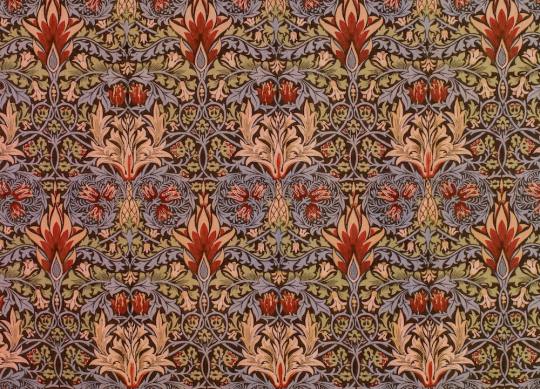
#discursive#ftm#hedonism#positive psychology#aristotle#writing#ramblings#rants#bdsmblog#twsui#tw s3lf harm#eudemonia#queer#k!nky thoughts#k!nk blog#PERMA#martin seligman#wellbeing#university#psychology#domspace#subspace
4 notes
·
View notes
Text
One humble beginning. It all begins with one shared experienced and one humble beginning.
Evelyn Bilias-Lolis, PhD
Interim Dean, School of Education & Human Development
Associate Professor, Psychology & Education

Modern society places tremendous value on status, achievement, titles, and any related indicator of personal or professional prosperity. The chase to amass credentials, merit, professional rank, social currency, and any material evidence of a life well lived is evident in every corner of modern American living. The “hustle” in American culture is glorified and the reward is reduced to items that showcase financial, personal, or social power: bank statements, car models, assets, the size and location of your office, your alma mater, your professional position, your relationship/marital status, etc.
Regardless of status, finances, achievements, and matters of personal and professional influence, we all ironically share one common start: the humble classroom. For most, our first classroom experience predates our memory and the tenure of our K-12 journey is one that becomes etched in our soul’s ethos for a lifetime. Future presidents, officials, CEOs, physicians, scholars, inventors, entrepreneurs, engineers, reformers, culinary geniuses, actors, and everything in between currently sit in the K-12 classrooms of our school systems. The majority are likely being educated in our public schools. In a pop culture and digital world filled with “influencers” topping the Instagram and TikTok halls of fame who will be likely forgotten tomorrow, we all remember the original influencers of our time, our educators.
Education, however, is in a state of crisis. That’s right. Crisis. The debris of the COVID-19 pandemic continues to vex our schools, our children’s mental health and learning needs continue to escalate as they try to recover from a 2.5-year disruption, and the quest to hire and maintain quality educators is growing insurmountably. Education, like the medical community, is experience record post-pandemic burnout. Professions that are lucrative to the functioning of society, to human development itself, are questioning their capacity to sustain themselves and the new crop is cautious to commit. Institutions of higher education are all trying to solve the same problem—how do we transform the teacher shortage crisis? How do we recruit individuals into a career that is as lucrative as air we breathe for the hope of our future?
What would happen to our children, their children, and the future of our society if the teacher shortage were to persist and our schools lacked quality, dedicated career professionals to provide them with the foundation for inquiry and the playground for their socialization, dreams, and aspirations? Let’s entertain that painful thought for a moment.
The bigger irony? Psychological science, specifically the field of positive psychology which examines variables that correlate most closely with personal and professional thriving, consistently suggests that psychological wellbeing is not tied to any one entity that we are conditioned by society to pursue: status, title, money, materialism, etc. (Seligman, 2011). In fact, these very things only explain a modest percentage of the variance in wellbeing (Diener & Biswas-Diener, 2002). The science of wellbeing robustly suggests that human flourishing involves the interplay among several key variables referred to in positive psychology as PERMA theory. Specifically, the five elements that interplay to optimize human flourishing, wellbeing, and potential include: positive emotions (i.e., experiences of pleasure/joy), engagement (i.e., the ability to be in flow, or completely in tune in an activity), relationships (i.e., the ability to engage in and connect in a meaningful way with others), meaning (i.e., the ability to have your strengths find their home in the world; to align the greater good) and accomplishment (i.e., mastering a goal/skill). (Seligman, 2011). The key elixir in this recipe is their INTERPLAY. Happiness science tells us that is not one thing in isolation, but a combination and interplay of the variables above that offer the best translation for personal flourishing.
Allow me to briefly focus on one of these variables more closely. “Meaning” or the aspect of engaging in activities that are larger than one’s self-interest and extend oneself for the greater good carry significant implications. Personality and developmental theory dating back to Erik Erikson (1950) suggests that the quest of middle adulthood/midlife is the concern for establishing and guiding the next generation; the notion of selfless reflection and giving of oneself to enact the next generation. This is often why many professionals in business and related industries make career changes sometime in their 40s or 50s, because they want to engage in a human services profession like education or counseling, in order to give to the next generation—one with a wider wingspan than their immediate family. There is indeed a renegotiation that occurs in midlife in which many feel personally called to do more for others and/or affiliate with projects and activities that are personally meaningful.
It is 2023. We are in an educational crisis. However, this crisis is not singularly educational; it is a societal crisis. The field of education is in dire need of educators and mental health workers to help our children recover, strive, and propel society forward with courage, compassion, and thought leadership. I do not know of a career or a professional home more likely to yield that delicate interplay of PERMA on a consistent basis than the school setting. I say this from experience, having served as a psychologist in the schools for many years and knowing that at the end of every day, regardless of how stressful, I laughed and experienced joy, I connected, I used to my talents for the greater good, and I found meaning in the work before me. This was the case even on the worst days. I know this has not changed. Our schools, however, need help; they need capable hands and faithful hearts to join their forces. Our children need real “influencers” in live time to help them navigate their development, celebrate their wins, and support their storms. We were fortunate to have these individuals step us for us. One humble classroom. They deserve the same.
Whether you are a mid-career professional, a student in undergraduate studies, or a parent who has stayed home to raise young children...if you have ever had the inkling or curiosity to pursue a career in education, school-base mental health, or any helping profession, take a moment and lean into that intuition. It is a calling. And we need you.
References:
Diener, E., & Biswas-Diener, R. (2002). Will money increase subjective well being? A literature review and guide to needed research. Social Indicators Research, 57, 119–169.
Diener, E., & Lucas, R.E. (2000). Subjective emotional well-being. In M. Lewis, & J.M. Haviland-Jones (Eds.), Handbook of emotions (pp. 325–337). New York: Guilford Press.
Erikson EH. Childhood and society. New York: Norton; 1950.
Seligman, M. (2011). Flourish. New York, NY: Free Press.
Seligman, M. (2018): PERMA and the building blocks of well-being, The Journal of Positive Psychology, DOI: 10.1080/17439760.2018.1437466
#Fairfield University#School of Education and Human Development#Evelyn Bilias-Lolis PhD#Covid-19#K-12#PERMA
3 notes
·
View notes
Text
I have just been permabanned from Reddit for the 3rd time. What was It this time?
So the story goes some dumbass made a post along the lines of "It doesnt matter what other countries think about US's gun culture its my 2nd amendment right to carry guns and [REDACTED]"
And some other dumbass commented saying "These are the same people praising ukrainians for having guns"
And apparently saying, and I quote, "Well Ukraine is a fucking warzone and not a school you absolute dumbass" constitutes as threats of violence according to Reddit's Admins.
I am beoynd done
2 notes
·
View notes
Text
Reflections on Positive Psychology
Something that really struck me was the quote from Jane Addams:
"The world progresses, in the slow and halting manner in which it does progress, only in proportion to the moral energy exerted by the men and women living in it."
I think this quote really speaks to the idea of positive psychology and the effect that it has on history. Martin Seligman is the founder of positive psychology and he focuses a great deal on personal happiness and how positive psychology contributes to our happiness. He uses the acronym PERMA to help explain the "elements of well-being" as he called them. PERMA stands for Positive emotions, Engagement, Relationships, Meaning, and Accomplishment. I agree that these elements will increase our happiness and I have no issue with it being presented in that way, but I think there is so much more potential for positive psychology.
What if instead of focusing positive psychology on our own happiness we focused it on the betterment of mankind? I think this is what Jane Addams is getting at without realizing it. In my mind, the idea of moral energy is the strength of a person to do what is right in the face of adversity and to march forward with courage doing what is best for others. I think PERMA is very much applicable to this idea as well. What if we form positive relationships with others who want to do good? Or find meaning and make accomplishments that go beyond ourselves? I think this is the key to positive history. Once we have that positive psychology set in our own mind it doesn't need to end once we achieve happiness (if that is even possible). It should be a continual journey for the betterment of others. It doesn't have to rock the world or fundamentally change the society we live in, it can be something small because those small acts will add up and contribute to progress.

Jane Addams and other peace delegates on the oceanliner NOORDAM
2 notes
·
View notes
Text
Positive Psychology and Positive History

Like Positive History, Positive Psychology is a relatively new topic. Dr. Martin Seligman, the founder of Positive Psychology, explained that he devoted most of his career to studying misery before he realized there had to be something "better than zero." Before this, psychology was studied similarly to history; the focus was on studying and learning to avoid atrocity. Positive Psychology and Positive History and revolutions of thought within their respective disciplines.
One thing that struck me about Positive Psychology was the reaction Dr. Seligman said he received. People acted like the findings were obvious and known previously, yet he was presenting evidence and tests that challenged some ideas of the general public. The discussion of money's relation to happiness is specifically interesting because it is like proof of the saying "money can't buy happiness," but it qualifies the statement as well. Money does actually seem to buy happiness for people struggling with poverty, yet it does not continue to increase happiness after people's needs are met. Positive Psychology gives some insight into the idea that reframing how we study something can open up a new wealth of information.
2 notes
·
View notes
Text
TELL ME ABOUT YOUR TRANSIDS!! YOUR PARAOHILEA!N YOUR LABELS!!
Tell me how you want to transition, what makes you euphoric..!! What you're attracted too, how you feel about X and y...!
It feels like the rq community doesn't discuss it enough- its mentioned but not in depth yk?
#radqueer#pro rq 🌈🍓#rq 🌈🍓#transid#rq community#rqc🌈🍓#transprogrammed#transramcoa#transrace#transage#perma
1 note
·
View note
Audio
(𝙎𝙏𝙊𝙁𝙁𝙄𝙎 𝙏𝙀𝘾𝙃𝙉𝙊 ᴰᴶ Ballert)
0 notes
Text
Perma - Pinnacle Parts and Service
Pinnacle Parts and Service is your trusted source for comprehensive industrial solutions. With a commitment to excellence and reliability, we specialize in providing top-quality parts and unmatched service to keep your operations running smoothly. Whether you require maintenance, repairs, or replacement parts, our experienced team ensures prompt delivery and superior workmanship. Count on Perma - Pinnacle Parts and Service for dependable support tailored to meet your specific needs and exceed your expectations. Partner with us for unparalleled reliability in the heart of your industrial endeavors."

0 notes
Text
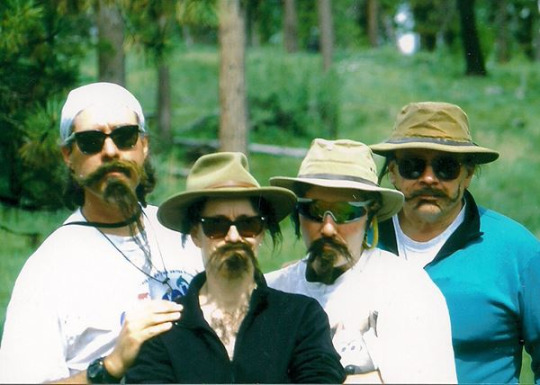
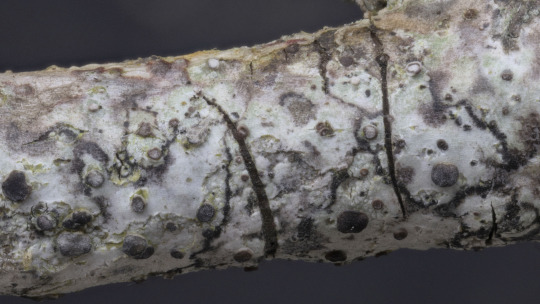
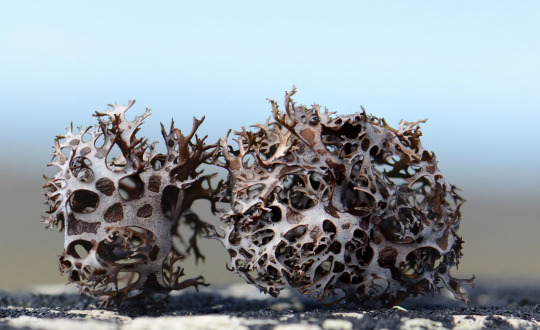
youtube
Northwest Lichenologists - Home (wildapricot.org)
#lichen#blitz#desperados#northwest#Masonhalea richardsonii#premiere#tundra#perma#bloc#techno#evolution#symbioses#endosymbiosis#planet#amoeba#Paulinella#photosynthesis#Youtube
0 notes
Audio
(PermaFrost)
ill allow it because the production is good alright
1 note
·
View note
Note
titless lae'zel is a yes, would her ass be fat though?
nah, flat chest flat ass this woman is built like a 2x4 steel beam
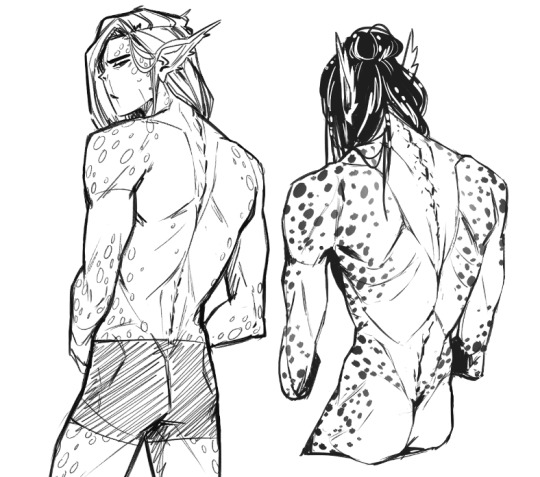
7K notes
·
View notes